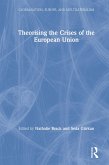This book addresses that gap in the literature. It provides a comprehensive analysis of NATO through a range of theoretical perspectives that includes realism, liberalism and constructivism, and lesser-known approaches centred on learning, public goods, securitisation and risk. Focusing on NATO's post-Cold War development, it considers the conceptualisation, purpose and future of the Alliance.
Dieser Download kann aus rechtlichen Gründen nur mit Rechnungsadresse in A, B, BG, CY, CZ, D, DK, EW, E, FIN, F, GR, HR, H, IRL, I, LT, L, LR, M, NL, PL, P, R, S, SLO, SK ausgeliefert werden.









